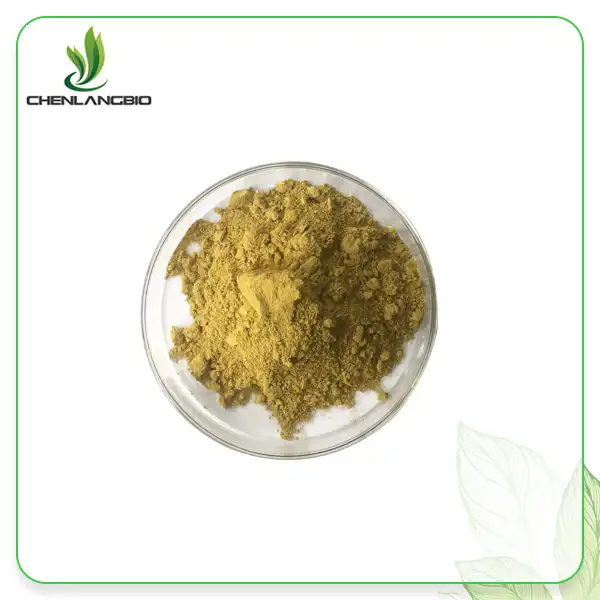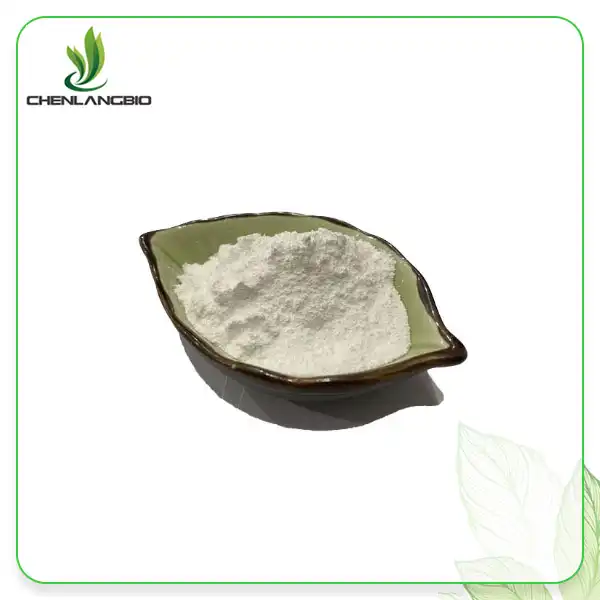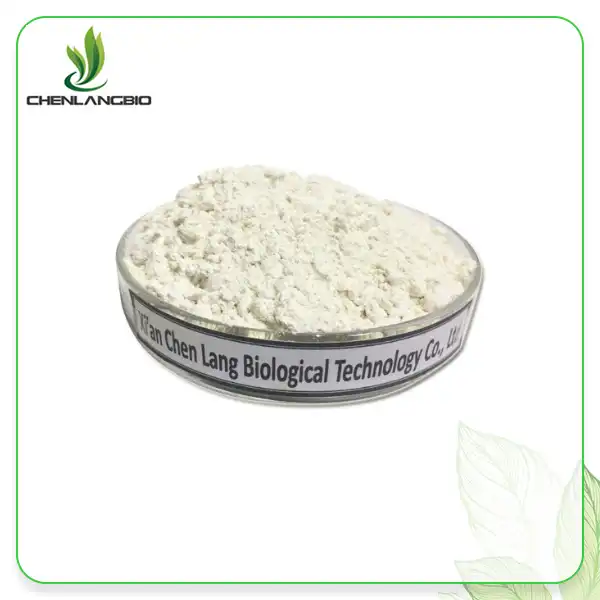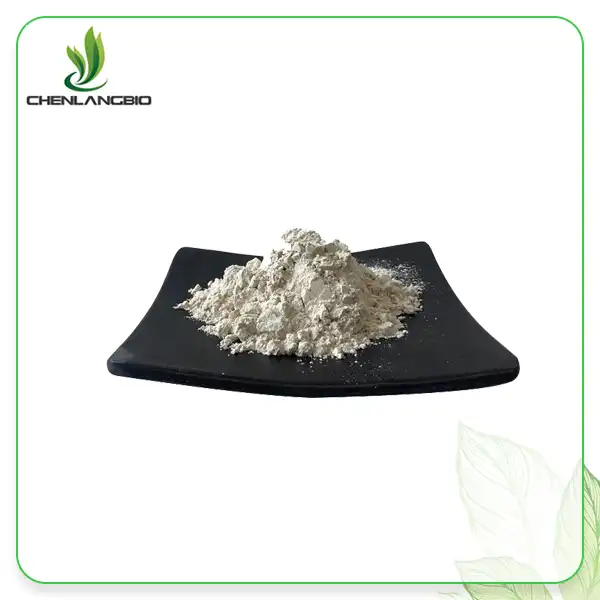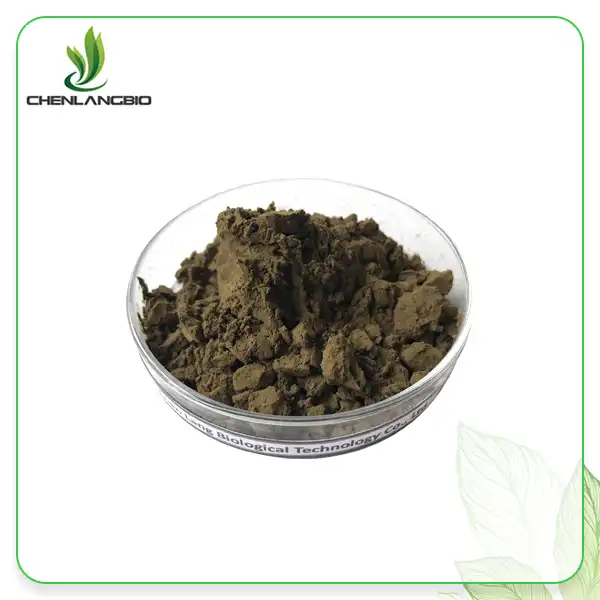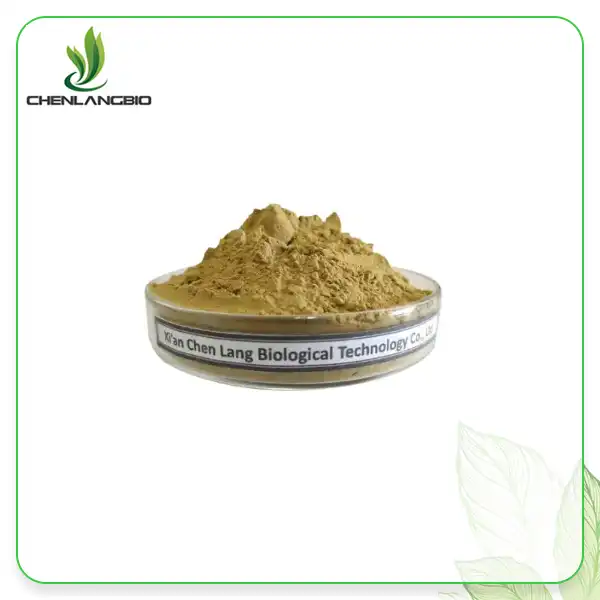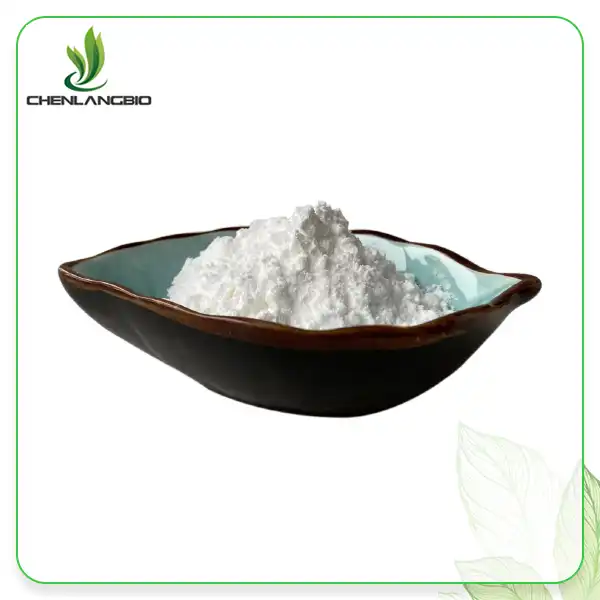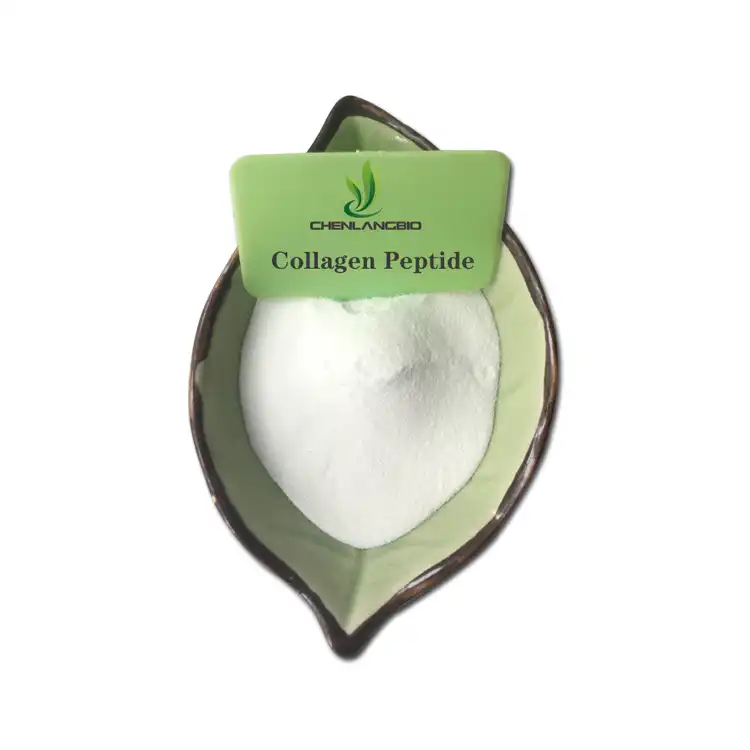How Does PQQ Support Mitochondrial Function?
2025-04-02 11:16:46
Mitochondria are often referred to as the powerhouses of cells, and their optimal functioning is crucial for overall health and vitality. In recent years, scientific attention has turned to pyrroloquinoline quinone (PQQ), a powerful micronutrient that shows remarkable potential in supporting and enhancing mitochondrial health. This naturally occurring compound, discovered in 1979, has emerged as a significant player in cellular energy production and protection against oxidative stress. Through various mechanisms, PQQ not only supports existing mitochondria but also stimulates the growth of new mitochondrial networks, offering promising implications for longevity, cognitive function, and metabolic health.
Pyrroloquinoline Quinone functions as a novel redox cofactor that differs from traditional nucleotides. It exhibits extraordinary capabilities in supporting mitochondrial function through multiple pathways, including stimulating mitochondrial biogenesis, protecting against oxidative damage, and enhancing energy production efficiency. As a potent antioxidant with activity thousands of times more powerful than vitamin C and vitamin E, PQQ neutralizes harmful free radicals that can damage mitochondrial structures. Additionally, it activates PGC-1α, a master regulator of mitochondrial biogenesis, effectively increasing both the number and efficiency of mitochondria within cells. This comprehensive support for mitochondrial health positions PQQ as a remarkable nutrient for cellular energy optimization and protection against age-related decline in mitochondrial function.
The Biochemical Mechanisms of PQQ in Mitochondrial Support
PQQ as a Redox Cofactor in Energy Production
Pyrroloquinoline Quinone serves as a unique redox cofactor that plays a fundamental role in cellular energy metabolism distinct from common cofactors like nicotinamide nucleotides and flavin nucleotides. Within the mitochondria, PQQ facilitates electron transfer in the respiratory chain, effectively enhancing ATP production efficiency. This remarkable compound can undergo thousands of redox cycles without degrading, making it an exceptionally efficient catalyst in energy-generating reactions. Research indicates that PQQ influences key enzymes involved in the Krebs cycle and electron transport chain, the central metabolic pathways for cellular energy production. By optimizing these processes, Pyrroloquinoline Quinone helps maintain a steady and efficient energy supply at the cellular level, which is particularly beneficial during periods of increased metabolic demand or stress. This enhanced energetic efficiency translates to improved cellular function across various tissues, particularly in organs with high energy requirements such as the heart, brain, and liver. The presence of PQQ in these critical pathways underscores its importance as a micronutrient involved in fundamental aspects of mitochondrial energy metabolism, supporting overall cellular function and resilience against metabolic challenges.
Mitochondrial Biogenesis Stimulation by PQQ
One of the most remarkable properties of pyrroloquinoline quinone is its ability to stimulate mitochondrial biogenesis—the process of creating new mitochondria within cells. PQQ accomplishes this primarily through activation of PGC-1α (peroxisome proliferator-activated receptor gamma coactivator 1-alpha), which serves as the master regulator of mitochondrial biogenesis. When PQQ activates this pathway, it triggers a cascade of events leading to increased mitochondrial DNA replication and the expression of genes essential for mitochondrial formation. Studies have demonstrated that supplementation with PQQ can increase mitochondrial content by up to 35% in some tissues, representing a significant enhancement in cellular energy capacity. This effect is particularly pronounced in aging tissues, where mitochondrial numbers naturally decline over time. The stimulation of mitochondrial biogenesis has profound implications for cellular health, as it effectively rejuvenates the cellular energy production network. With more mitochondria available, cells can maintain energy homeostasis even under conditions of increased demand or stress. Additionally, by promoting the renewal of the mitochondrial population, PQQ helps ensure that damaged or dysfunctional mitochondria are replaced with new, efficiently functioning organelles, thereby maintaining the overall quality of the cellular mitochondrial network and supporting longevity at the cellular level.
Protective Effects Against Mitochondrial Damage
Pyrroloquinoline Quinone exhibits remarkable protective capabilities against various forms of mitochondrial damage. As a potent antioxidant with activity significantly exceeding that of vitamin C and vitamin E, PQQ effectively neutralizes reactive oxygen species (ROS) that typically accumulate as byproducts of mitochondrial energy production. These free radicals, if left unchecked, can damage mitochondrial DNA, proteins, and membranes, leading to decreased function and accelerated aging. PQQ's antioxidant capacity extends beyond simple free radical scavenging—it also modulates cellular pathways that respond to oxidative stress, enhancing the cell's intrinsic defense mechanisms. Research has shown that Pyrroloquinoline Quinone helps preserve mitochondrial membrane potential during oxidative challenges, maintaining the electrochemical gradient necessary for ATP production. Furthermore, PQQ supports mitochondrial quality control processes, facilitating the removal of damaged mitochondrial components through mitophagy (selective degradation of mitochondria) and promoting the synthesis of new mitochondrial proteins. In models of ischemia-reperfusion injury, PQQ has demonstrated significant protective effects on mitochondrial function, reducing the size of damaged areas in cardiac tissue and preserving cellular viability. These multifaceted protective mechanisms contribute to improved mitochondrial resilience in the face of various stressors, ranging from environmental toxins to metabolic imbalances, thereby supporting optimal mitochondrial function and cellular health over time.
Health Benefits Associated with PQQ's Mitochondrial Support
Cognitive Enhancement and Neuroprotection
Pyrroloquinoline Quinone offers significant cognitive benefits through its powerful mitochondrial support in neural tissues. The brain, despite constituting only about 2% of body weight, consumes approximately 20% of the body's oxygen and energy resources, making mitochondrial function particularly crucial for cognitive performance. PQQ enhances neuronal mitochondrial efficiency, ensuring optimal energy supply to support the high metabolic demands of brain cells. Beyond basic energy provision, Pyrroloquinoline Quinone stimulates the production of nerve growth factor (NGF), a protein essential for the growth, maintenance, and survival of neurons. This neurotrophic effect promotes neuroplasticity—the brain's ability to form new neural connections throughout life. Research has demonstrated that PQQ supplementation improves memory, attention, and information processing in both animal models and human studies. Particularly notable is PQQ's ability to protect against neurodegenerative processes by preserving mitochondrial function in neurons exposed to toxins or oxidative stress. In models of Alzheimer's and Parkinson's diseases, PQQ has shown promise in reducing the accumulation of harmful protein aggregates and preserving neuronal viability. The compound's dual action of enhancing mitochondrial energy production while simultaneously protecting neural cells from oxidative damage makes it uniquely beneficial for cognitive health. These neuroprotective properties suggest that PQQ supplementation may be particularly valuable for maintaining cognitive function during aging, when mitochondrial efficiency naturally declines and oxidative stress increases, potentially slowing age-related cognitive changes and supporting lifelong brain health.
Cardiovascular Health Improvements
The heart, with its continuous contractile activity, contains one of the highest concentrations of mitochondria in the body, making cardiac tissue particularly responsive to the mitochondrial-enhancing effects of pyrroloquinoline quinone. PQQ supports cardiovascular health through multiple mechanisms directly related to mitochondrial function. By optimizing energy production in cardiomyocytes (heart muscle cells), PQQ enhances the heart's pumping efficiency and overall performance. Research has demonstrated that PQQ supplementation can protect against cardiac damage following ischemic events by preserving mitochondrial function in oxygen-deprived tissues. This cardioprotective effect is particularly significant as it helps reduce the extent of damage during heart attacks and improves recovery outcomes. Beyond acute protection, Pyrroloquinoline Quinone also supports long-term cardiovascular health by improving lipid metabolism and reducing oxidative stress in vascular tissues. Studies have shown that PQQ can help maintain healthy blood pressure levels through its effects on endothelial function and vascular tone, processes heavily dependent on mitochondrial energy provision. Furthermore, PQQ's ability to activate AMPK (AMP-activated protein kinase), a key regulator of cellular energy homeostasis, helps optimize cardiac energy utilization and reduces the risk of metabolic imbalances that can strain heart function. The compound's anti-inflammatory properties also contribute to cardiovascular health by reducing vascular inflammation, a key contributor to atherosclerosis development. These comprehensive cardiovascular benefits underscore the importance of mitochondrial function in heart health and highlight PQQ as a promising nutritional compound for supporting cardiac wellness through enhanced mitochondrial efficiency.
Metabolic Regulation and Energy Enhancement
Pyrroloquinoline Quinone plays a pivotal role in metabolic regulation through its profound effects on mitochondrial function and energy production. By enhancing mitochondrial efficiency, PQQ optimizes the metabolism of carbohydrates, fats, and proteins, supporting balanced energy utilization throughout the body. Research indicates that PQQ activates AMPK (AMP-activated protein kinase), often described as the body's "metabolic master switch," which regulates glucose uptake, fatty acid oxidation, and cellular energy balance. This activation helps improve insulin sensitivity and glucose metabolism, potentially offering benefits for metabolic health and weight management. Studies have demonstrated that Pyrroloquinoline Quinone supplementation can increase resting metabolic rate, enhancing energy expenditure without stimulant effects commonly associated with other metabolism-boosting compounds. This leads to improved physical energy levels and reduced fatigue during daily activities. PQQ's ability to stimulate mitochondrial biogenesis is particularly beneficial for metabolic tissues like skeletal muscle and liver, where increased mitochondrial density supports greater metabolic flexibility—the capacity to switch between different fuel sources based on availability and demand. This metabolic adaptability is crucial for maintaining energy homeostasis during various physiological states, from fasting to exercise. Furthermore, by reducing oxidative stress and inflammation, two factors that can impair metabolic function, PQQ helps maintain metabolic pathways in optimal working condition. The comprehensive metabolic support provided by PQQ makes it a valuable nutrient for individuals seeking to enhance their energy levels, improve exercise performance, and maintain healthy metabolism throughout aging, when mitochondrial function typically declines and metabolic challenges become more pronounced.
PQQ Supplementation and Practical Applications
Optimal Dosage and Safety Considerations
Determining the appropriate dosage of Pyrroloquinoline Quinone requires careful consideration of efficacy, safety, and individual needs. Based on current research and regulatory guidelines, most clinical studies have utilized PQQ doses ranging from 10 to 20 mg daily, with consistent benefits observed within this range. Since gaining approval as a dietary supplement in the United States in 2009 and in the European Union in 2018, safety evaluations have established PQQ as generally well-tolerated at these dosages. The supplement is typically formulated as PQQ sodium salt (PQQ-2Na+) due to its enhanced water solubility compared to the base compound, facilitating better absorption and bioavailability. Regulatory bodies recommend a maximum daily intake of 20 mg for adults, with current guidelines advising against consumption by infants, young children, pregnant women, and lactating women until more comprehensive safety data becomes available for these specific populations. Safety studies have demonstrated that PQQ exhibits minimal toxicity even at doses substantially higher than recommended supplements, with no significant adverse effects reported in human trials using standard dosages. As with any supplement, individual responses may vary, and some people might experience mild side effects such as headaches or sleep disturbances, particularly when beginning supplementation. When incorporated into functional beverages, industry standards typically limit PQQ concentration to 40 mg/kg (with solid beverage products calculated based on prepared liquid volume). For optimal results, many health practitioners recommend taking PQQ with a meal containing some fat to enhance absorption, and some evidence suggests potential synergistic benefits when combined with other mitochondrial-supporting nutrients like Coenzyme Q10. As research continues to evolve, these dosage recommendations may be refined to target specific health outcomes or population groups more precisely.
Synergistic Nutrients and Complementary Approaches
pyrroloquinoline quinone delivers enhanced mitochondrial benefits when combined with complementary nutrients that support cellular energy production through different mechanisms. Coenzyme Q10 (CoQ10) stands out as PQQ's most significant synergistic partner, as it serves as a critical electron carrier in the mitochondrial respiratory chain while PQQ supports mitochondrial biogenesis. Studies have shown that combining these two nutrients produces greater improvements in mitochondrial function and antioxidant capacity than either compound alone. This powerful combination effectively addresses both mitochondrial quantity (through PQQ-stimulated biogenesis) and quality (through CoQ10's support of efficient electron transport). Other beneficial complementary nutrients include alpha-lipoic acid, which recycles antioxidants within the cell and supports glucose metabolism; B vitamins, particularly riboflavin (B2) and niacin (B3), which serve as precursors for critical mitochondrial enzymes; and resveratrol, which activates sirtuin pathways that regulate mitochondrial function and cellular aging processes. Magnesium also plays an essential role as a cofactor for numerous mitochondrial enzymes involved in ATP production.
Beyond nutritional approaches, lifestyle practices significantly enhance PQQ's mitochondrial benefits. Regular physical exercise naturally stimulates mitochondrial biogenesis through pathways complementary to PQQ's mechanisms, potentially creating an additive effect when combined. Similarly, caloric restriction or intermittent fasting regimens activate cellular stress response pathways that enhance mitochondrial efficiency and quality control systems. Adequate sleep quality is equally important, as it allows for mitochondrial repair and optimal functioning of energy metabolism. Cold exposure therapies like cold showers or cryotherapy may also complement PQQ's effects by activating brown adipose tissue and stimulating mitochondrial thermogenesis. This integrated approach combining PQQ supplementation with synergistic nutrients and supportive lifestyle practices offers comprehensive support for mitochondrial health beyond what any single intervention could provide.
Innovative Applications in Health and Wellness
Pyrroloquinoline Quinone's remarkable mitochondrial-supporting properties have inspired innovative applications across various health and wellness sectors. In the pharmaceutical industry, researchers are investigating PQQ-based compounds as potential therapeutic agents for conditions characterized by mitochondrial dysfunction, including neurodegenerative diseases, cardiac disorders, and metabolic syndromes. These pharmaceutical applications aim to leverage PQQ's neuroprotective, cardioprotective, and metabolism-regulating properties to develop targeted interventions for specific health conditions. Within the nutritional supplement market, PQQ is increasingly formulated in advanced mitochondrial support complexes that combine multiple synergistic ingredients in scientifically optimized ratios, creating comprehensive solutions for energy enhancement and cellular health. Leading-edge supplement manufacturers like Xi An Chen Lang Bio Tech Co., Ltd. are pioneering high-purity PQQ products with enhanced bioavailability and stability.
Their premium Pyrroloquinoline Quinone powder (CAS: 72909-34-3) undergoes rigorous quality testing using advanced analytical techniques including high-performance liquid chromatography-evaporative light scattering detection (HPLC-ELSD) and ultraviolet-visible spectrophotometry. The functional food and beverage industry has begun incorporating PQQ into formulations specifically designed to support cognitive performance, exercise recovery, and healthy aging. These products range from "brain-boosting" beverages to sports nutrition formulas that capitalize on PQQ's mitochondrial enhancement properties. In the cosmetic sector, innovative skincare formulators are harnessing PQQ's potent antioxidant capacity and ability to support cellular energy in specialized anti-aging products. These topical applications aim to enhance skin cell metabolic activity, promote collagen synthesis, and protect against environmental damage. Looking toward the future, emerging research is exploring PQQ's potential applications in personalized nutrition programs tailored to individual genetic profiles and mitochondrial health status, positioning this remarkable compound at the forefront of precision approaches to wellness and longevity.
Conclusion
Pyrroloquinoline quinone (PQQ) represents a breakthrough in mitochondrial support, offering comprehensive benefits for cellular energy production, protection, and renewal. As research continues to unveil its far-reaching effects on health, PQQ stands as a promising nutrient for those seeking optimal vitality and longevity through enhanced mitochondrial function. Experience the difference with Chen Lang Bio's premium-grade PQQ powder, produced under stringent quality controls from selection to delivery. For more information or to place an order, contact our expert team at admin@chenlangbio.com today and power your health to new heights!
References
1. Chowanadisai, W., Bauerly, K. A., & Rucker, R. B. (2010). Pyrroloquinoline quinone stimulates mitochondrial biogenesis through cAMP response element-binding protein phosphorylation and increased PGC-1α expression. Journal of Biological Chemistry, 285(1), 142-152.
2. Harris, C. B., Chowanadisai, W., Mishchuk, D. O., Satre, M. A., Slupsky, C. M., & Rucker, R. B. (2013). Dietary pyrroloquinoline quinone (PQQ) alters indicators of inflammation and mitochondrial-related metabolism in human subjects. Journal of Nutritional Biochemistry, 24(12), 2076-2084.
3. Nakano, M., Ubukata, K., Yamamoto, T., & Yamaguchi, H. (2009). Effect of pyrroloquinoline quinone (PQQ) on mental status of middle-aged and elderly persons. Food Style, 13(7), 50-53.
4. Rucker, R., Chowanadisai, W., & Nakano, M. (2009). Potential physiological importance of pyrroloquinoline quinone. Alternative Medicine Review, 14(3), 268-277.
5. Stites, T., Storms, D., Bauerly, K., Mah, J., Harris, C., Fascetti, A., & Rucker, R. (2006). Pyrroloquinoline quinone modulates mitochondrial quantity and function in mice. Journal of Nutrition, 136(2), 390-396.
6. Zhang, Y., Feustel, P. J., & Kimelberg, H. K. (2006). Neuroprotection by pyrroloquinoline quinone (PQQ) in reversible middle cerebral artery occlusion in the adult rat. Brain Research, 1094(1), 200-206.
Send Inquiry
Related Industry Knowledge
- What Are the Key Benefits of Pharmaceutical-Grade Progesterone Micronized Powder?
- How is Calcium Alpha-Ketoglutarate Monohydrate Used in Clinical or Sports Nutrition?
- How is D-Luciferin Potassium Salt Administered for in Vivo Imaging?
- What are the Excitation and Emission Properties of D-Luciferin Sodium Salt?
- Was Your Tetrahydrocurcumin Product Colored the Same as Curcumin
- What is the Mechanism of Action of Praziquantel
- Can You Use Bakuchiol Under Eyes
- Can You Take PQQ While Pregnant?
- Is Konjac Extract Powder Good For Weight Loss
- What is Natural Stevia Extract Powder Used for



